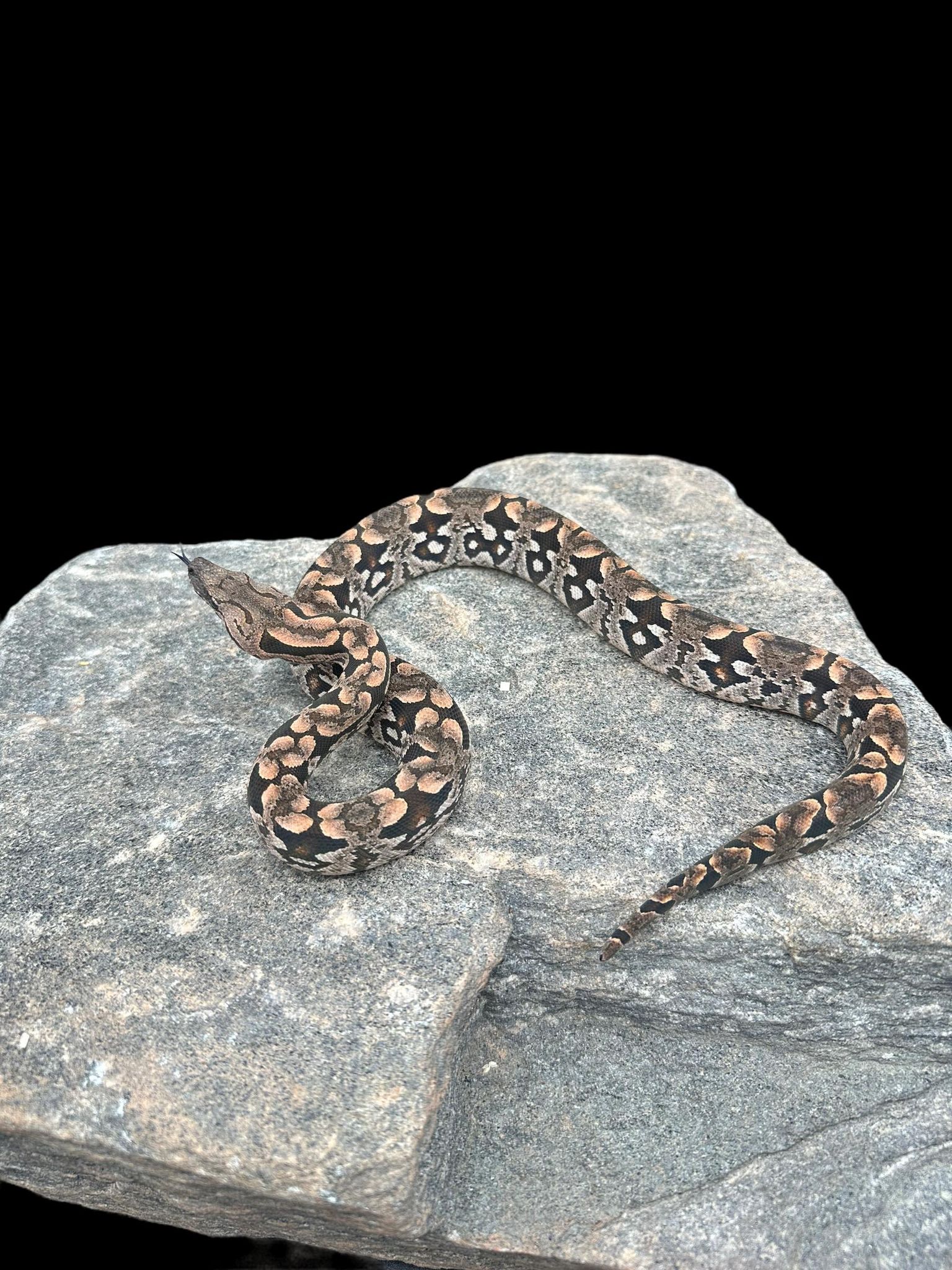Photo Disclaimer
Description
Dumeril’s Boa
Acrantophis dumerili
Common Name: Dumeril’s Boa
Species Overview
-
Size: Adults average 5–7 feet (1.5–2.1 m), with some females reaching 8 feet. They are heavily built for their length, giving them a solid, muscular appearance.
-
Appearance: Dumeril’s boas have a mottled tan, brown, and black pattern that provides exceptional camouflage against leaf litter. Their coloration can vary from lighter sandy tones to darker browns depending on locality and individual variation.
-
Distribution: Endemic to Madagascar, primarily the southern and southwestern regions.
-
Habitat: Found in dry forests, scrublands, and semi-arid regions, often utilizing ground cover, burrows, or fallen vegetation for concealment.
-
Behaviour: Terrestrial and ambush-based, these boas rely on camouflage to remain undetected. They are nocturnal hunters feeding on mammals, birds, and reptiles.
Captive Care
-
Enclosure: Adults thrive in 4′ × 2′ × 2′ enclosures, though larger is recommended for females. Provide secure hides, cork bark, and leaf-litter-style substrate to mimic natural camouflage. While primarily terrestrial, they may appreciate low climbing branches.
-
Temperature & Humidity: Maintain daytime ambient temperatures of 78–82°F (25–28°C) with a basking spot of 86–88°F (30–31°C). Nighttime drops to 72–75°F (22–24°C) are beneficial. Humidity should remain 50–60%, with periodic misting and access to fresh water.
-
Diet: Juveniles feed every 7–10 days on appropriately sized rodents; adults every 14–21 days. Care should be taken not to overfeed, as this species is prone to obesity.
-
Behaviour in Captivity: Dumeril’s boas are generally docile and tolerant of handling once acclimated. They may show strong feeding responses but rarely display defensive aggression.
-
Special Considerations: Dumeril’s boas are CITES-listed due to their restricted wild range and should be maintained as pure, non-crossed bloodlines. Captive-bred individuals are the standard in the trade, as wild exports from Madagascar are restricted.
Species Note
The Dumeril’s boa (Acrantophis dumerili) is one of two boa species endemic to Madagascar (alongside Acrantophis madagascariensis). Known for their cryptic camouflage, stocky build, and calm nature, they differ from Boa constrictor species in both appearance and ecological niche. Their rarity in the wild makes captive breeding efforts crucial to their continued presence in the hobby.

